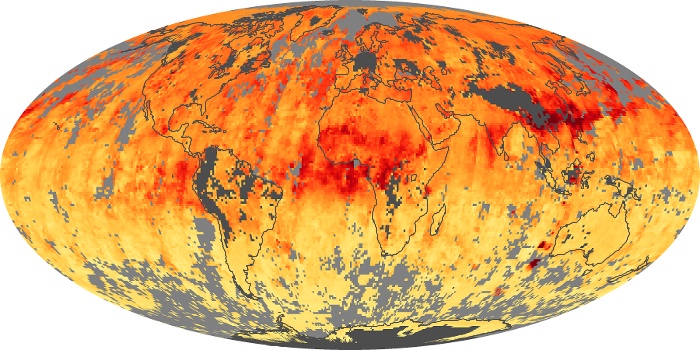Hi My Friends: A VUELO DE UN QUINDE EL BLOG., In the United States, Europe, and eastern China, on the other hand, the
highest carbon monoxide concentrations occur around urban areas as a
result of vehicle and industrial emissions. Fires burning over large
areas in North America and Russia in some years can be an important
source. The MOPITT observations often show that pollution emitted on one
continent can travel across oceans to have a big impact on air quality
on other continents.
Global Maps

Colorless, odorless, and poisonous, carbon
monoxide is one of the six major air pollutants regulated in the United
States and in many other nations around the world. When carbon-based
fuels, such as coal, wood, and oil, burn incompletely or inefficiently,
they produce carbon monoxide. The gas is spread by winds and circulation
patterns throughout the lower atmosphere (called the troposphere).
These maps show monthly averages of global concentrations of
tropospheric carbon monoxide at an altitude of about 12,000 feet. The
data were collected by the MOPITT (Measurements Of Pollution In The
Troposphere) sensor on NASA’s Terra satellite. Concentrations of carbon
monoxide are expressed in parts per billion by volume (ppbv). A
concentration of 1 ppbv means that for every billion molecules of gas in
the measured volume, one of them is a carbon monoxide molecule. Yellow
areas have little or no carbon monoxide, while progressively higher
concentrations are shown in orange and red. Places where the sensor
didn’t collect data, perhaps due to clouds, are gray.
In different parts of the world and in different seasons, the amounts
and sources of atmospheric carbon monoxide change. In Africa, for
example, the seasonal shifts in carbon monoxide are tied to the
widespread agricultural burning that shifts north and south of the
equator with the seasons. Fires are an important source of carbon
monoxide pollution in other regions of the Southern Hemisphere, such as
the Amazon and Southeast Asia.
In the United States, Europe, and eastern China, on the other hand,
the highest carbon monoxide concentrations occur around urban areas as a
result of vehicle and industrial emissions. Fires burning over large
areas in North America and Russia in some years can be an important
source. The MOPITT observations often show that pollution emitted on one
continent can travel across oceans to have a big impact on air quality
on other continents.
Carbon monoxide is a trace gas in the atmosphere, and it does not
have a direct effect on the global temperature, like methane and carbon
dioxide do. However, carbon monoxide plays a major role in atmospheric
chemistry, and it affects the ability of the atmosphere to cleanse
itself of many other polluting gases. In combination with other
pollutants and sunshine, it also takes part in the formation of
lower-atmospheric (“bad”) ozone and urban smog.
- View, download, or analyze more of these data from NASA Earth Observations (NEO):
- Carbon Monoxide
Guillermo Gonzalo Sánchez Achutegui
ayabaca@hotmail.com
ayabaca@gmail.com
ayabaca@yahoo.com
Inscríbete en el Foro del blog y participa : A Vuelo De Un Quinde - El Foro!






No hay comentarios:
Publicar un comentario